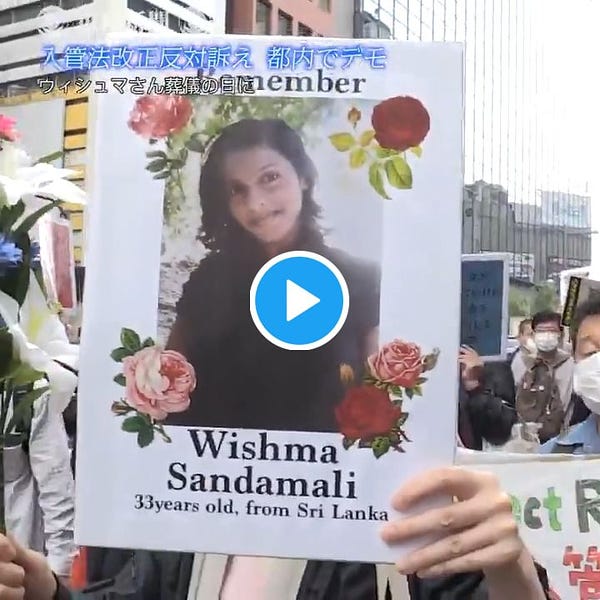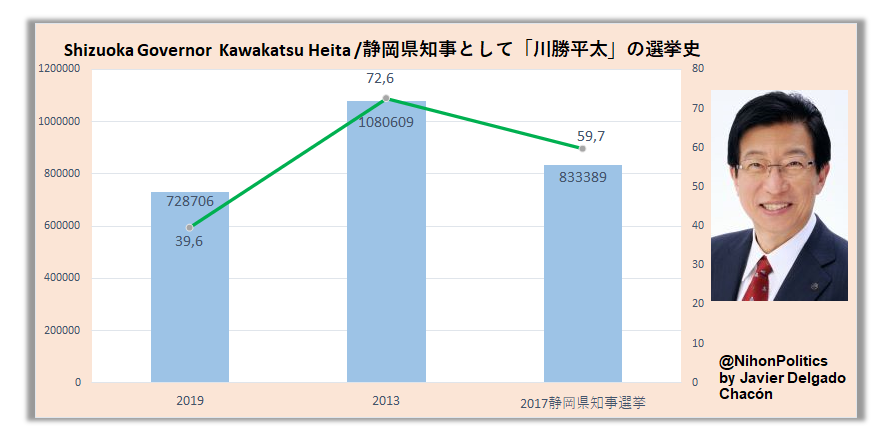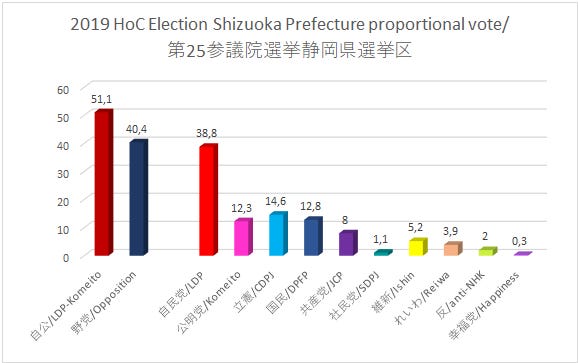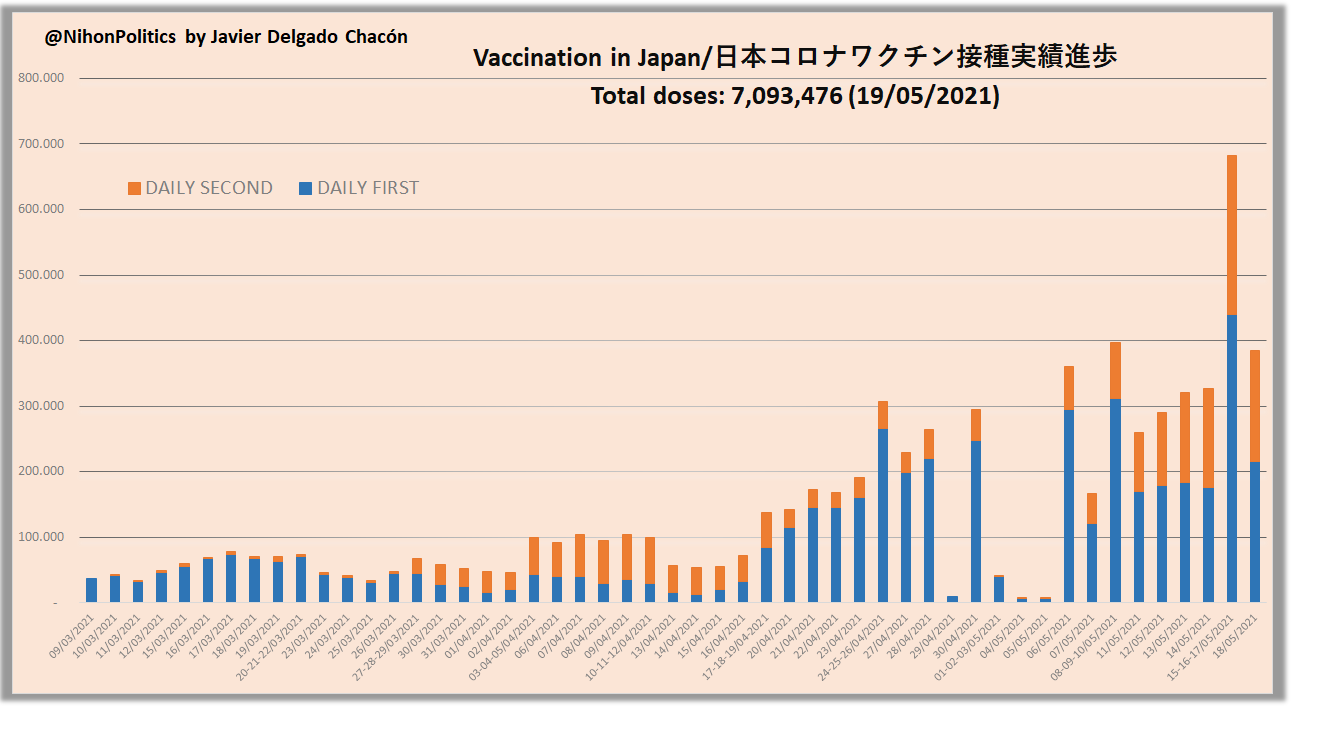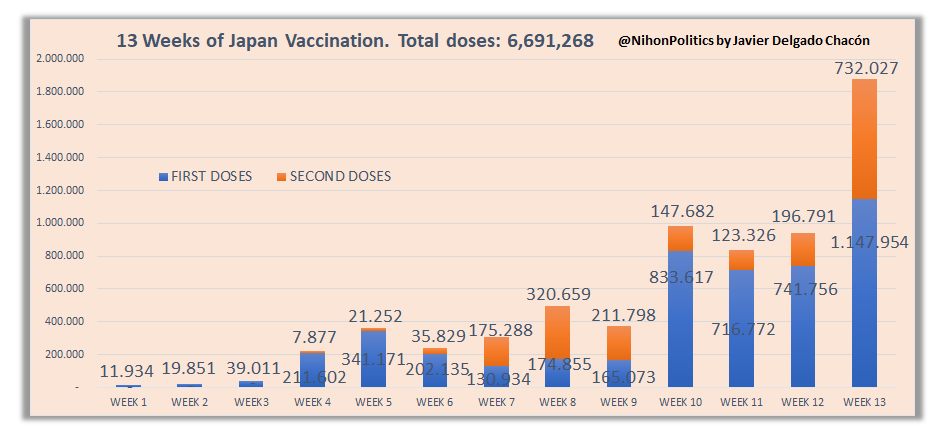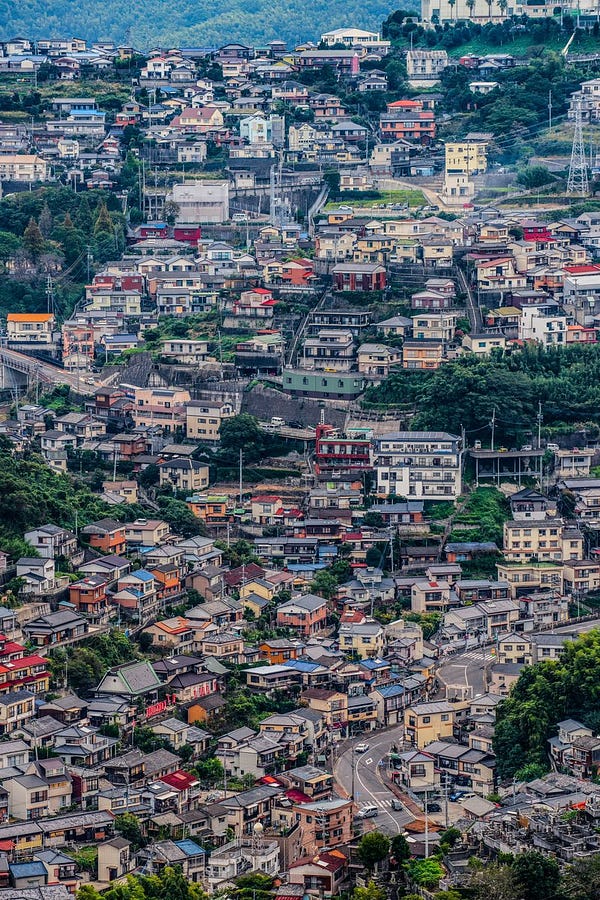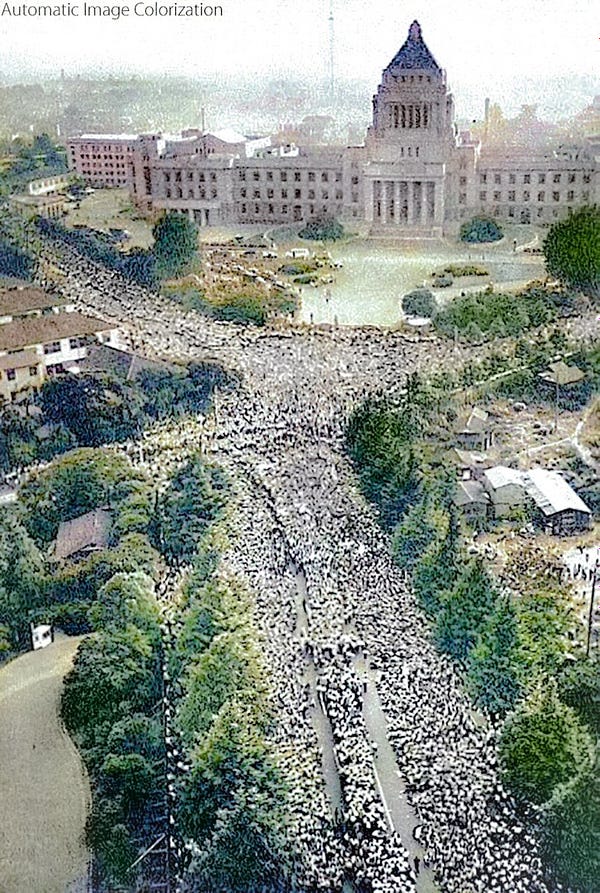Mass Vaccination of the Elderly Starts in Japan
A Dropped Immigration Bill, Shizuoka Passing & the Vaccination Accelerates
Hello. Welcome to the Nihonpolitics Newsletter.
Thank you to all the new followers on Twitter and those signing up for the Newsletter too. I am very grateful.😊
Today’s Newsletter has three main items: the Immigration Bill, the Race for Governor of Shizuoka & Vaccination.
Let’s get right into it!
A New Death Sparks Controversy on the Immigration Bill ⚖️
On March 6, Ratnayake Liyanage Wishma Sandamali, a young immigrant from Sri Lanka died at an immigration facility in the city of Nagoya, Aichi. According to Japanese media, she had been detained in a small jail there since August of 2020 for allegedly overstaying her student visa. During her stay, she made several requests asking for health treatment which were not answered by the immigration authorities, leading to her death only two months ago. The case of Sandamli is not the first1, and it is unlikely it will be the last, of the completely preventable death of an immigrant coming to Japan in search of a better life.
For years the Japanese Government has been sharply criticized over its immigration policy, especially in regards to the (extremely low) admission of refugees and the way it deals with foreign nationals facing deportation orders.
The Death of this young woman from Sri Lanka has recently sparked demonstrations by immigration lawyers and activists, humanitarian organizations and even Opposition lawmakers in Japan, at the same time that the national Diet is debating a proposed amendment by the government to the National Immigration Law.


The LDP and Komeito seek to change the “Immigration Control & Refugee Recognition Act”「出入国管理及び難民認定法」 with a reform that has inflamed the Opposition, even more after the death of Wishma Sandamali. The most controversial point, which likely violates international conventions, would create an exception to the suspension of the forced expulsion of refugees petitioning for a stay in Japan, allowing their deportation after the third application, if the previous ones have been unsuccessful. Furthermore, the amendment would not reform the problematic system of “indefinite detention of foreign nationals facing deportation”, a formula that has become the norm in the last years2.
It’s unconscionable how refugees and their status might be considered a problem in the country nowadays. In each of the last three years, Japan received roughly 10k applications for refugee status, from which only a few dozen were approved.

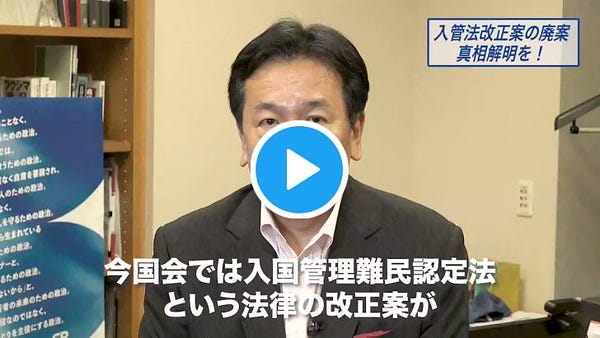
In the last days, the pressure was so strong by different elements of civil society as well as the political Opposition in the Diet that, at the last minute, the LDP decided to withdraw the reform of the bill, at least for this session of the Diet!
Clash of Titans for the Race of Governor of Shizuoka
Last week, Iwaki Shigeki「岩井茂樹」a 2-term member of the House of Councillors from the LDP declared his candidacy to fight for the governorship of his prefecture, Shizuoka, on the 20th of June, setting up a clash with the current governor.
The Election for Govern of Shizuoka is shaping up to be the biggest electoral contest left before the election for the Tokyo Metropolitan Election in July.
First elected in 2010, Iwaki has already resigned his seat in the Upper House. For the last year, he had been State Minister (vice minister) of Land, Infrastructure, Trasport and Tourism 「国土交通副大臣」under Prime Minister Suga.
2010 House of Councillors Election:
554,459 (32.6%), elected first of two seats
2016 House of Councillors Election:
747,410 (44.2%), elected first of two seats
This election is an opportunity for the LDP to recover some confidence after the defats of last April. After 8 years, the party has decided to present its own candidate in the race for Governor of Shizuoka Prefecture. It was not an easy choice. In 2013 the party suffered a huge defeat, which led to giving up the fight, at least officially, against the incumbent in 2017.
Elected for the first time in 2009, Kawakatsu Heita has been building for decades his reputation as a fearless defender of Shizuoka, winning reelection by big numbers in a prefecture not especially friendly to the Opposition3 parties. Since 2009, Kawakatsu has been explicitly supported by the Opposition parties, like the DPJ and now the CDPJ. During these years he’s been able to build his own personality defeating the LDP candidates4 in two out of three elections5 as well as, in the last years, going head-to-head with the central government.
In the race between the Governor of Shizuoka and Iwaki Shigeki, the previous State Minister of Transportation, an issue, specifically, of infrastructure has become central in the campaign: the construction of the Linear Chuo Shinkansen Line「リニア中央新幹線」6.
In the past, Governor Kawakatsu has shown his public opposition to the construction of the Chuo Maglev Shinkansen Line (the next generation of the Shinkansen line), which, as projected, must flow through a very small stretch of its territory. He won’t allow it.
There are two linked worries at play here: political and environmental issues.
Environmental Worries
Opponents to the construction of the Chuo Line through Shizuoka allege it would have grave implications on the environment of Shizuoka, specifically in the region of the Japanese Southern Alps, to the north of the prefecture: about water wells, the flow of the Oi River and the return, or not, of the expected large quantities of water at the source of the river that could be found after the proposed construction of an 8.9km long tunnel bisecting the prefecture.
For centuries, the Oi River has been central to the economy and human development of Shizuoka.
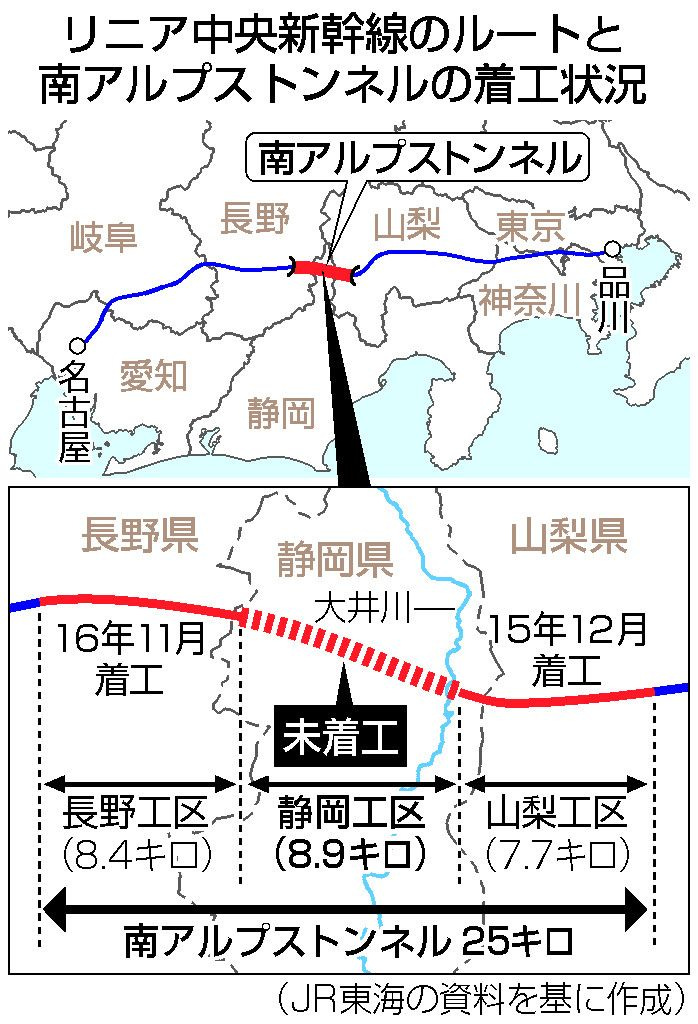
Shizuoka Passing
The second question is quasi-political in nature. For years, the people of Shizuoka and its government have felt left behind in the economic development of the 東海地方 region of Japan, especially, in terms of transportation. For instance, the lack of a stop in Shizuoka Prefecture of the fastest Shinkansen train in the Tokaido Line, the Nozomi「のぞみ」, is well-known.
This feeling of grievance was accentuated recently when JR central decided not to build a new Shinkansen station that would connect Shizuoka city with the “Fuji-Shizuoka Airport”. The prefecture feels that they get nothing from JR Central, a situation that is not set to change; in fact, in the current construction scheme of the Chuo Shinkansen ( the Maglev train previously mentioned), there’s no plan to provide Shizuoka prefecture with a station in its territory on this line either!
A regular arrival of Shinkansen, including the fastest Nozomi, would provide quick access to the prefecture from Tokyo, with its consequential economic gains, also for the tourism industry. Thus, Governor Kawakatsu has openly clashed not only with the leadership of JR but also with the central government in recent months asking for some kind of compensation in return to the tunnel in the Minami Alps, to no avail yet.
These two issues, which are naturally intertwined, are set to become a central point in the campaign for Governor of Shizuoka. The LDP knows it’ll be a tough fight against a popular governor in a prefecture, whose fundamentals, should give the LDP an upper hand though…
Prime Minister Suga has provided in recent days explicit support to his candidate Iwaki Shigeki. While there’re no public polls yet, a new defeat for them would further damage the government of Suga and the LDP after the triple beating in April…
Retirement of Two CDPJ Incumbents Inperils the Party’s Offensive in Hokkaido ❄️
In recent days, two veteran members of the Lower House of the Diet representing Hokkaido from the Constitutional Democratic Party of Japan, announced their intention not to run for reelection in the fall.
Both incumbents, which have close to 40 years of experience in national politics combined, have held posts of high responsibility in the previous government of the Opposition in 2009. Their retirement deals a blow to the CDPJ which currently controls half of the Single Member Districts allocated to Hokkaido and was decided to be on the attack for more seats in the next election. Now, the party is scrambling with just a few weeks (or months) left to find replacement candidates.
A former bureaucrat of the Ministry of Agriculture, Arai Satoshi「荒井聰」has been representing the third district of Hokkaido, located in the city of Sapporo, for 8 terms in the Lower House. Political watchers expect him to be succeeded, as the CDPJ candidate, by his son. Although the party should be the favorite to hold the seat, it is likely it’ll be competitive this time around without a long-term incumbent in place.


In 2017, Arai Satoshi was able to take back the seat, which had been occupied by an LDP member since the election of 2012, when the LDP and Shinzo Abe returned. The lack of other opposition candidates, especially from the JCP, was conducive for his victory hand-to-hand in 2017 though. In seats like these, which are competitive but might lean to the Opposition, it’s essential for them to consolidate a single candidate that can give a straight fight to the LDP, otherwise…
2017 House of Representatives Election: 141,680 / 54.4% (win)
2014 House of Representatives Election: 85,591 / 36.5% (loss)
2012 House of Representatives Election: 64,599 / 27% (loss)
2009 House of Representatives Election: 186,081 / 61% (win) (The 2009 DPJ landslide had to be brutal)
Recently, another CDPJ incumbent from Hokkaido decided to retire from the Diet. Also from a farming background, Sasaki Takahiro was a veteran rank-and-file soldier of Opposition politics for decades in the Diet, representing the Sixt District of Hokkaido, which encompasses a central part of the island, for years, trading his seat with other LDP winners several times. It says a lot about the competitiveness of the district.


The retirement of Sasaki is another sizable loss for the CDPJ. The lack of an incumbent in the seat will probably make it competitive in the fall.


2017 House of Representatives Election: 136,312 / 54.5% (win)
2014 House of Representatives Election: 104,595 / 45.3% (win)
2012 House of Representatives Election: 69,272 / 28.9% (loss)
2009 House of Representatives Election: 175,879 / 55.4% (win)
Progress on the Vaccination Process of Japan💉
On the vaccination front, last week, Japan took a giant step in the process, administering a record 1.8 million doses for the first time since it started in late February. The pace is clearly increasing. 👏👏
After the hiccup of Golden Week, when the data was not that reliable with a wildly irregular pace, the daily rate now is set between 300k & 400k per day. Japan should be just days away (I hope) from hitting half a million/per day!
In the weekly chart, we can see a record 1.1million first doses, breaking the previous one set on Week 10, thanks to an important administration of doses during the last weekend (over 680k!). This increase was driven by the start of mass vaccination of Japanese seniors in cities throughout the country. That’s the focus right now of the vaccination process.
There was also a record on second doses, with close to 700k, which went mainly to healthcare workers.
Nevertheless, Japan needs to ramp up the daily pace even more. I guess it’s a matter of time though…
We want to see these lines take a vertical form soon!! 🚀
Do you want to know when Japan will hit 60% of its population vaccinated? Check out this website. As of today (20th of May), it will take “482 days”.
This kind of projection is only interesting insofar you can see how the number of days (left) is reduced as the daily pace of vaccination increases!
Tweet(s) of the Week💬
The mesmerizing hills of Nagasaki. I have a plan in mind for a week wandering throughout Kyushuu…
This story is amazing.



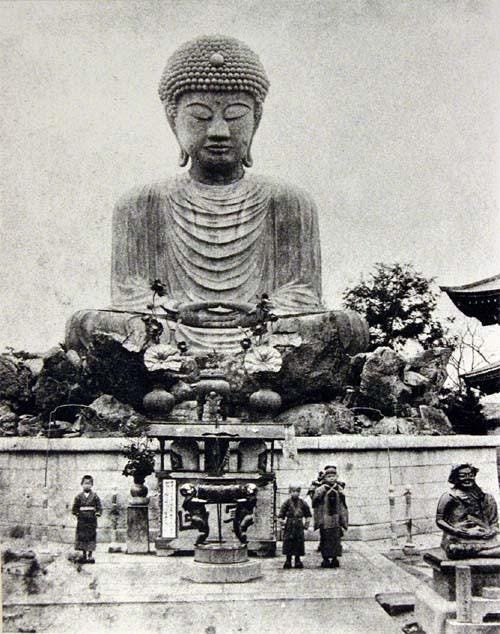
Anti-Anpo Demonstrations in Japan in the 1960s had to be momentous.
Thank you for being here another week. I hope you liked the content. ☺️
I am already working on a piece about the Tokyo Metropolitan election coming up in July. Stay Tuned…
Since 1997, at least 24 detainees have died in the custody of Japanese immigration bureaus, according to the NYTimes.
In this election, he won’t receive an official endorsement either but the CDPJ and the DPFP have shown their support.
According to the Asahi Newspaper, the LDP was hesitant at first to present an official candidate this year, after 1) the complete defeat the party suffered in late April, 2) previous losses against Governor Kawakatsu.
In the election of 2017, the LDP did not officially have a candidate in the race. However, the party lent its support to, from the outside, Mizoguchi Noriko「溝口紀子」, a female silver medalist on Judo in the 1992 Olympics who ran as an independent.
Check out this video on the future Maglev Chuo Shinkansen Line from Shinagawa Station to Nagoya. (HT to @Borners1)







